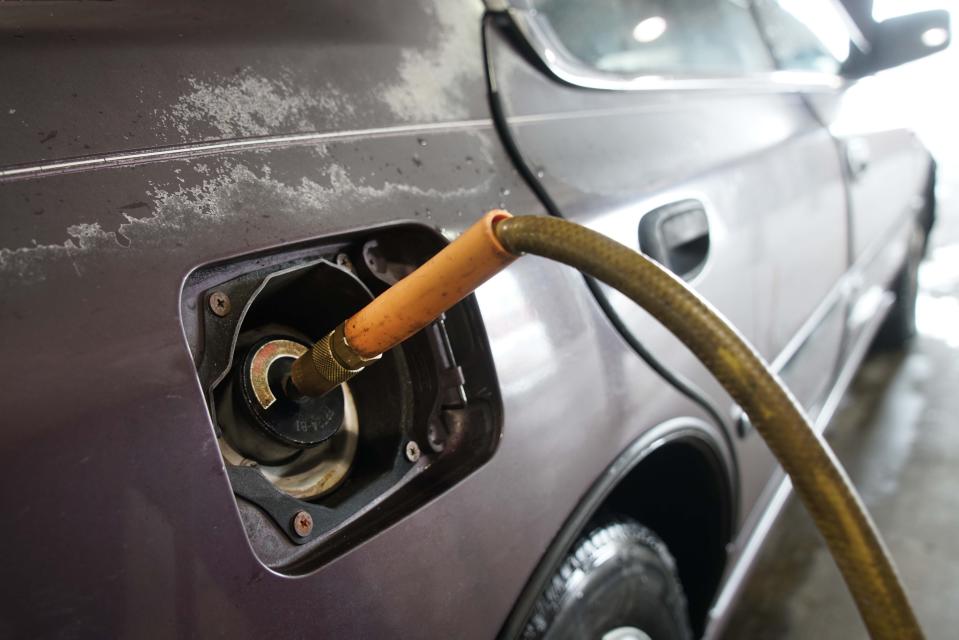Delaware’s move to Advanced Clean Cars 2 needs your support. Here's why | Opinion
Imagine a not-too-distant future when Delawareans have cleaner air, fewer health problems from air pollution and lower health and energy costs. Delaware is now considering a policy already adopted by six states, and under consideration in at least six others, called Advanced Clean Car 2, or ACC 2.
Air pollution is something we don’t often see with our eyes, but it’s something our lungs and hearts know is there. Delaware has high levels of the major pollutant, smog. Major sources of smog are the gasoline and diesel vehicles that we own, or that travel our highways. We also have high levels of smog-related health problems, including child-hood asthma. It will only get worse unless we make changes, and having cleaner cars is a foundation of those changes.
ACC 2 requires auto makers to ramp up selling electric, plug-in hybrid, and hydrogen cars over the next 10 years. This, coupled with incentives on the state and federal level, makes it easier to purchase and own new electric vehicles, which then improves the ability of lower and middle income families to benefit from them.

Failure to adopt ACC 2 will not mean the transition to cleaner cars won’t happen. The states already going forward are big enough to move the market for the manufacturers. But Delaware will be left out of the benefits by waiting. We will have fewer clean cars sent to our dealers, and fewer incentives to make it easier to buy and own them. We will continue to pay high prices for gas, instead of using electricity that is less expensive and works more efficiently to move vehicles. ACC 2 does not mean people will have to give up their gas vehicles, but it will help make the change easier when folks are ready. ACC 2 also puts in safe-guards that help protect consumers. And by providing milestones for manufacturers and consumers, it means that the transition will be smoother and more under control.
We are physicians who have regularly cared for patients in primary and urgent care practices. We know how important it is to prevent harm, and not to just send patients back to settings in which they will keep getting sick. As a reminder, every major health care organization in the country, including the AMA, the Public Health Association and those representing nurses, pediatricians, internists, family physicians and gynecologists, have called for rapid and national steps to stop using fossil fuels and to control air pollution. Smog, and its fellow pollutant, Soot, gets into our lungs, then through our blood stream to all our organs. It’s been shown to cause and worsen heart and lung conditions, dementia, and pregnancy problems — anyplace they are carried by our blood. That is happening now —our air is not “clean enough”, we are part of the problem, and the solution is now available. Waiting to get started will only make it harder to get things better.
Electric and hybrid vehicles are not perfect. Anything we make and use, including gasoline cars, requires raw materials and raises concerns about how to dispose of them. But new car technology is now proven in how it works, and is only getting better as more and more people world-wide use it. A gasoline-powered car only takes advantage of 20% of the energy of each gallon of fuel — the rest goes to overcoming friction in the engine, to producing heat, and exhaust fumes. They’re expensive to maintain.
Clean energy vehicles are 90% efficient in their energy use. That’s one of the reasons they’re less expensive to operate, and they have fewer moving parts, making them easier and cheaper to maintain. ACC 2 does not take away consumer choice. It gives consumers more options over the next 10 years, and continues what has already started. The market is already moving toward cleaner cars, and the majority of Americans want us to address pollution and climate change. Over the last 50 years many things initially resisted, changed to make our lives better and healthier.
We were told that smoking didn’t cause cancer, heart, and lung disease, and the tobacco companies wouldn’t be selling something bad for us. Almost 50% of adult Americans were smokers, now it’s less than 20%. The tobacco companies knew the problems, and many people suffered. The companies that make fossil fuels have known foryears about the problems from them. Now we have the chance to fix those problems, especially what they do to our health.
Delawareans are thoughtful and polite, not afraid to disagree and have always been innovators. We now can catch the wave of cleaner cars and build a healthier environment for our families and neighbors. The future has already begun — and ACC 2 will help us reap the benefits and to help shape that future.
Anna Quisel, Alan Greenglass, Patt Panzer, Debbi Zarek, David Donohue and Stephanie Malleus are all doctors and members of the Mid Atlantic Alliance for Climate and Health, of which the Sierra Club Delaware Chapter is a member. The writers do not represent the views of the Sierra Club Delaware Chapter.
This article originally appeared on Delaware News Journal: Delaware Advanced Clean Cars 2 needs support

